
An open bite is a type of malocclusion, or misalignment of the teeth, where the upper and lower teeth do not touch when the mouth is closed, creating a noticeable opening. This can occur at the front of the mouth (anterior open bite) or at the sides (posterior open bite). Causes of an open bite include genetic factors, thumb-sucking or prolonged use of pacifiers during childhood, skeletal issues, or temporomandibular joint (TMJ) disorders. Open bites can lead to difficulties in biting and chewing, speech problems, and increased wear on the remaining teeth that do make contact.
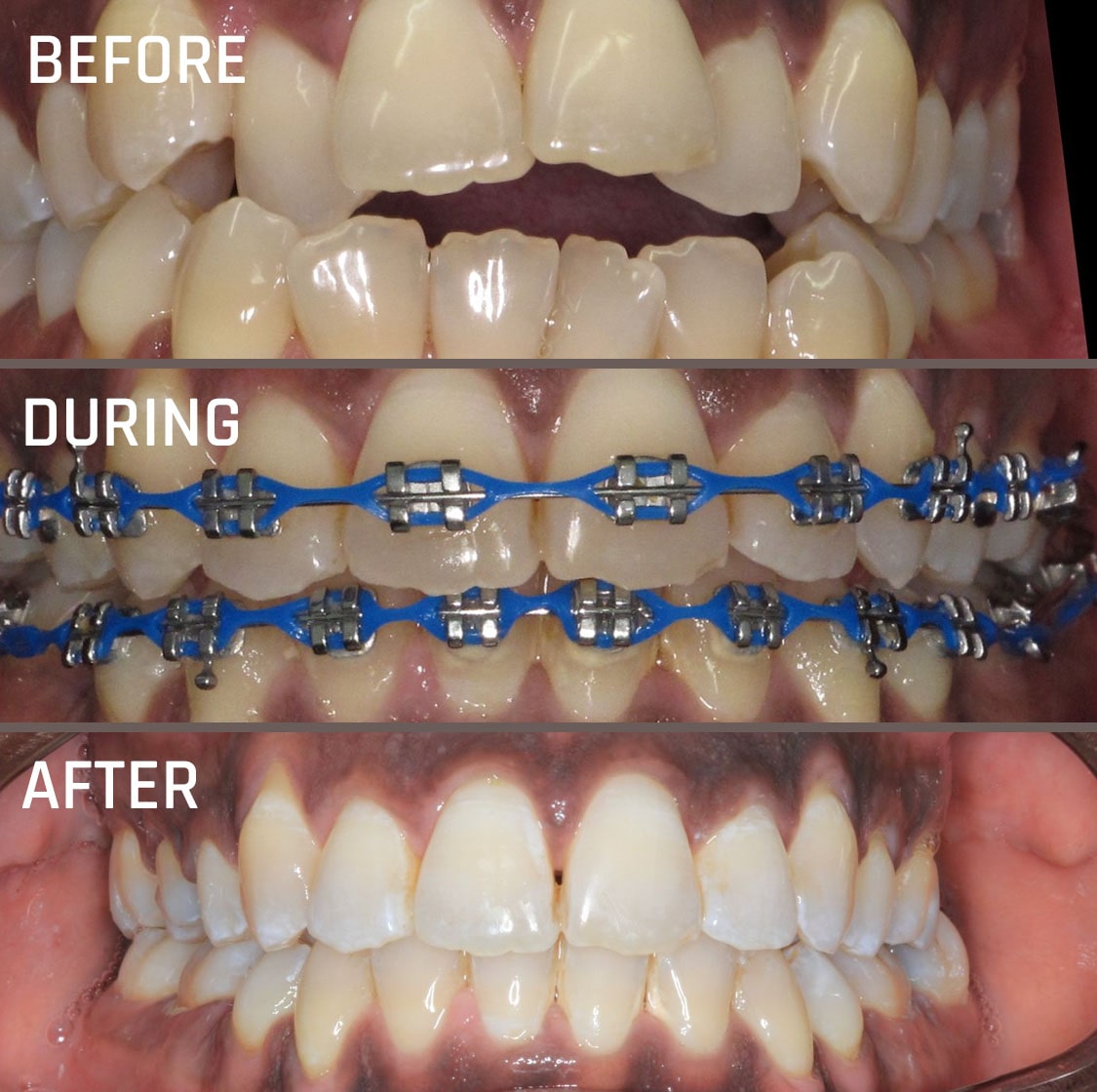
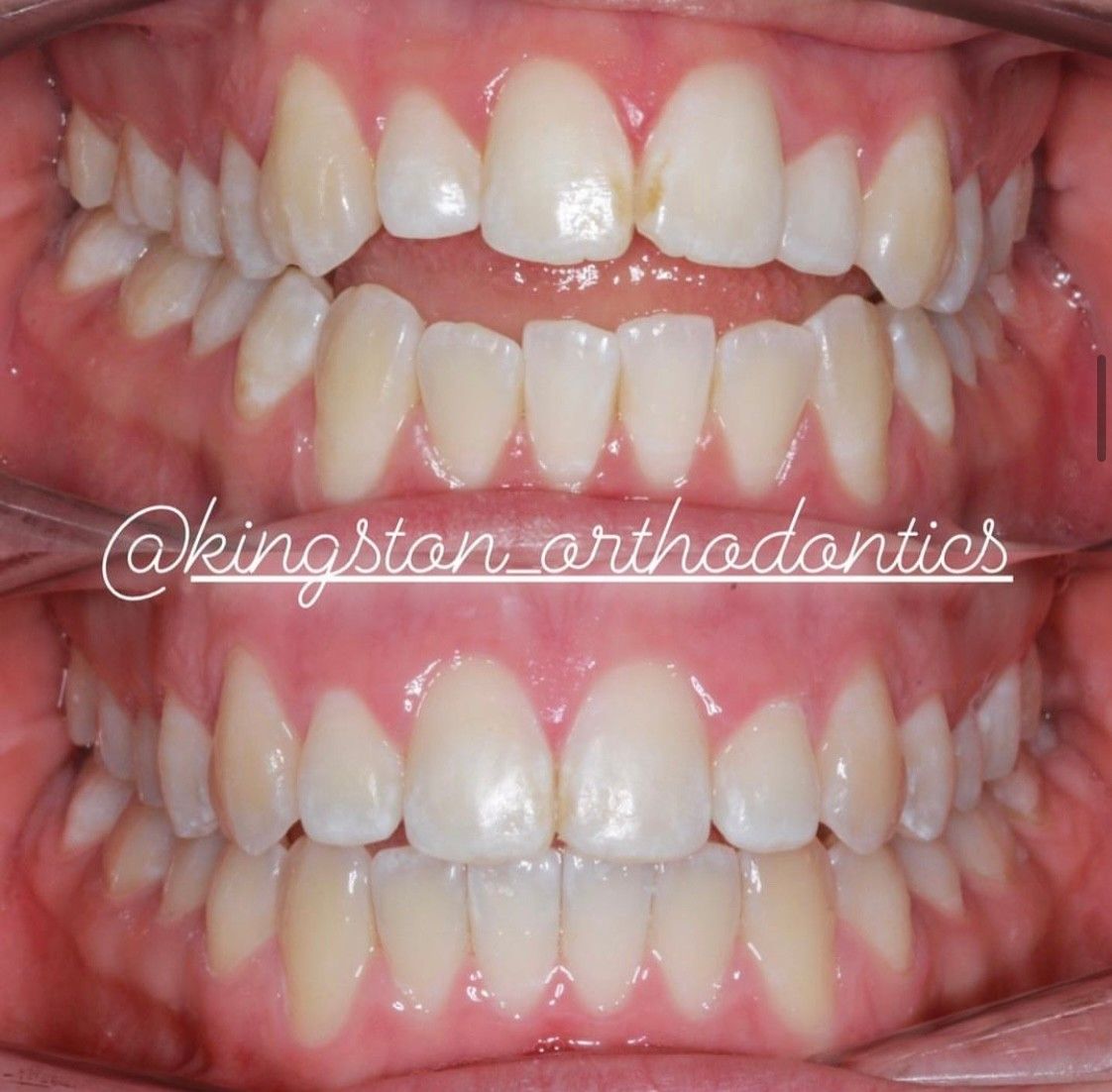
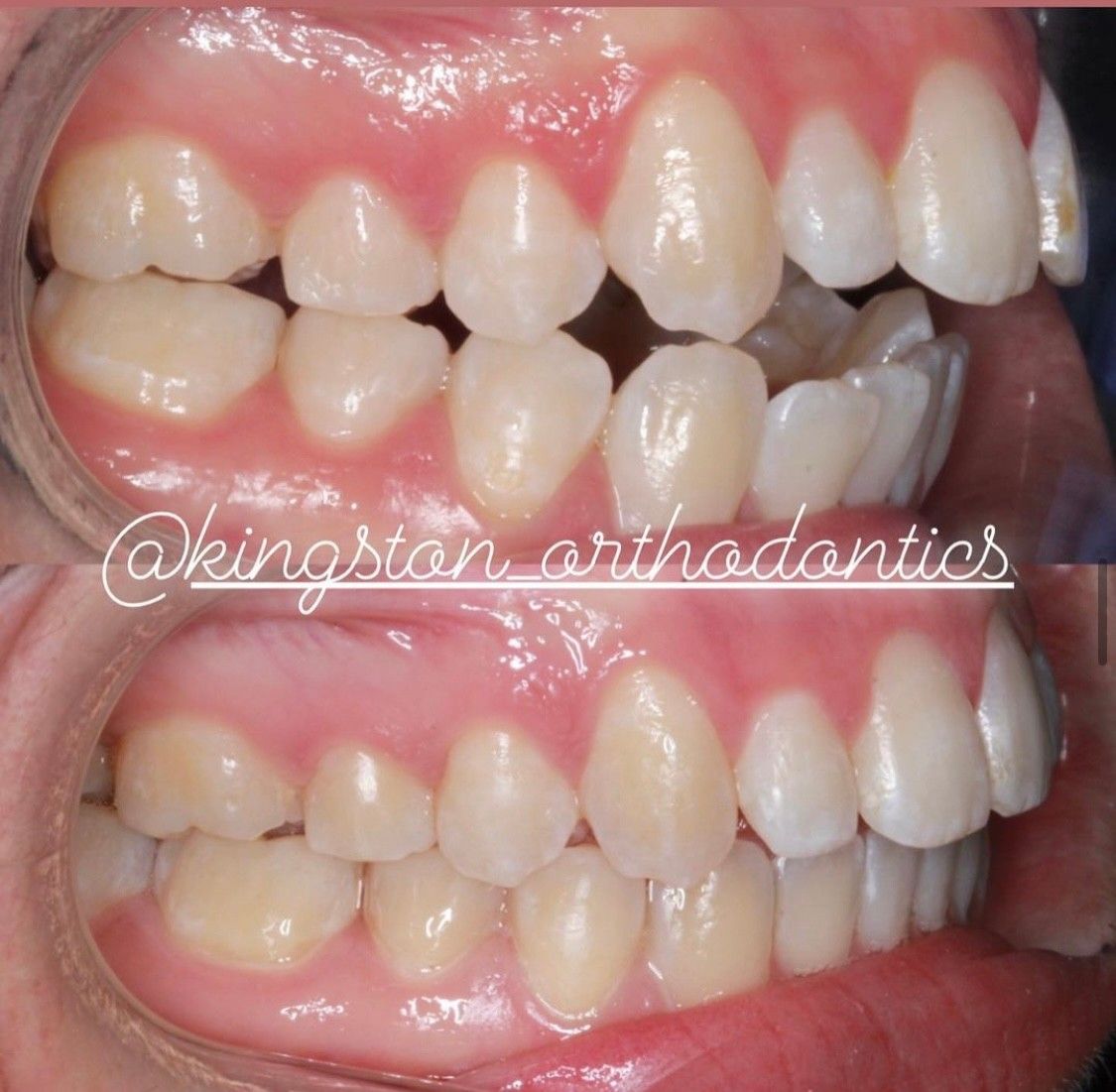
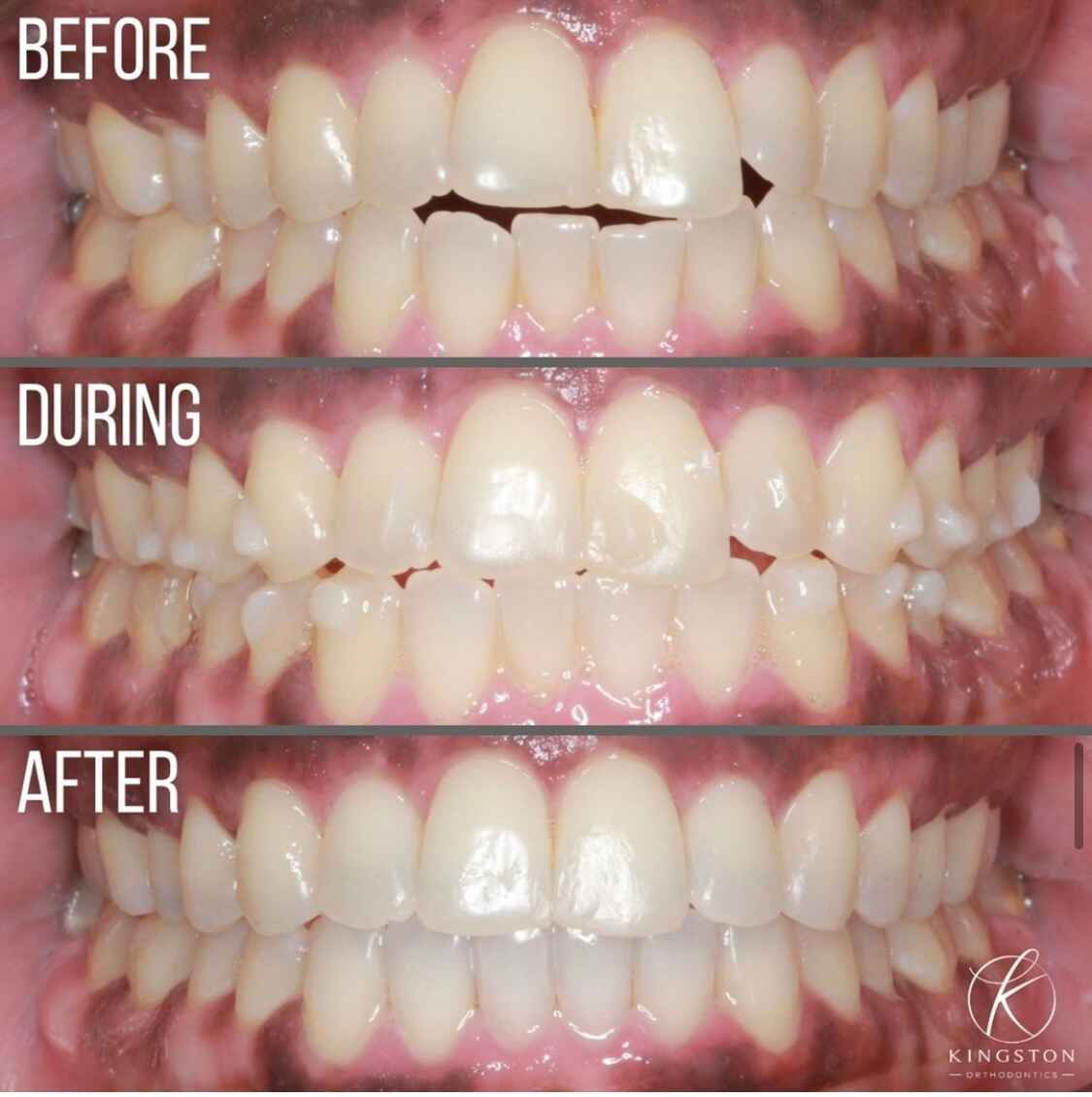
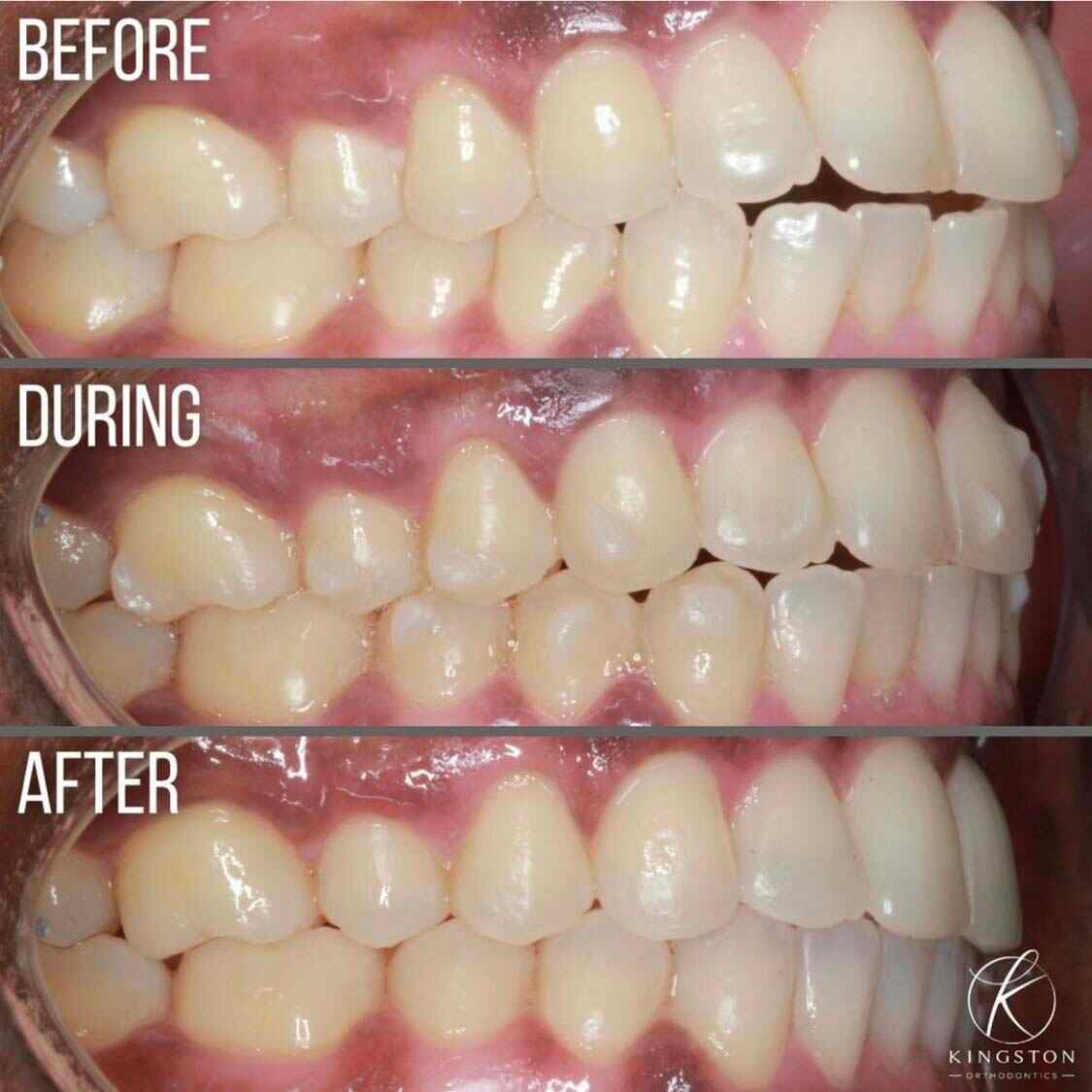
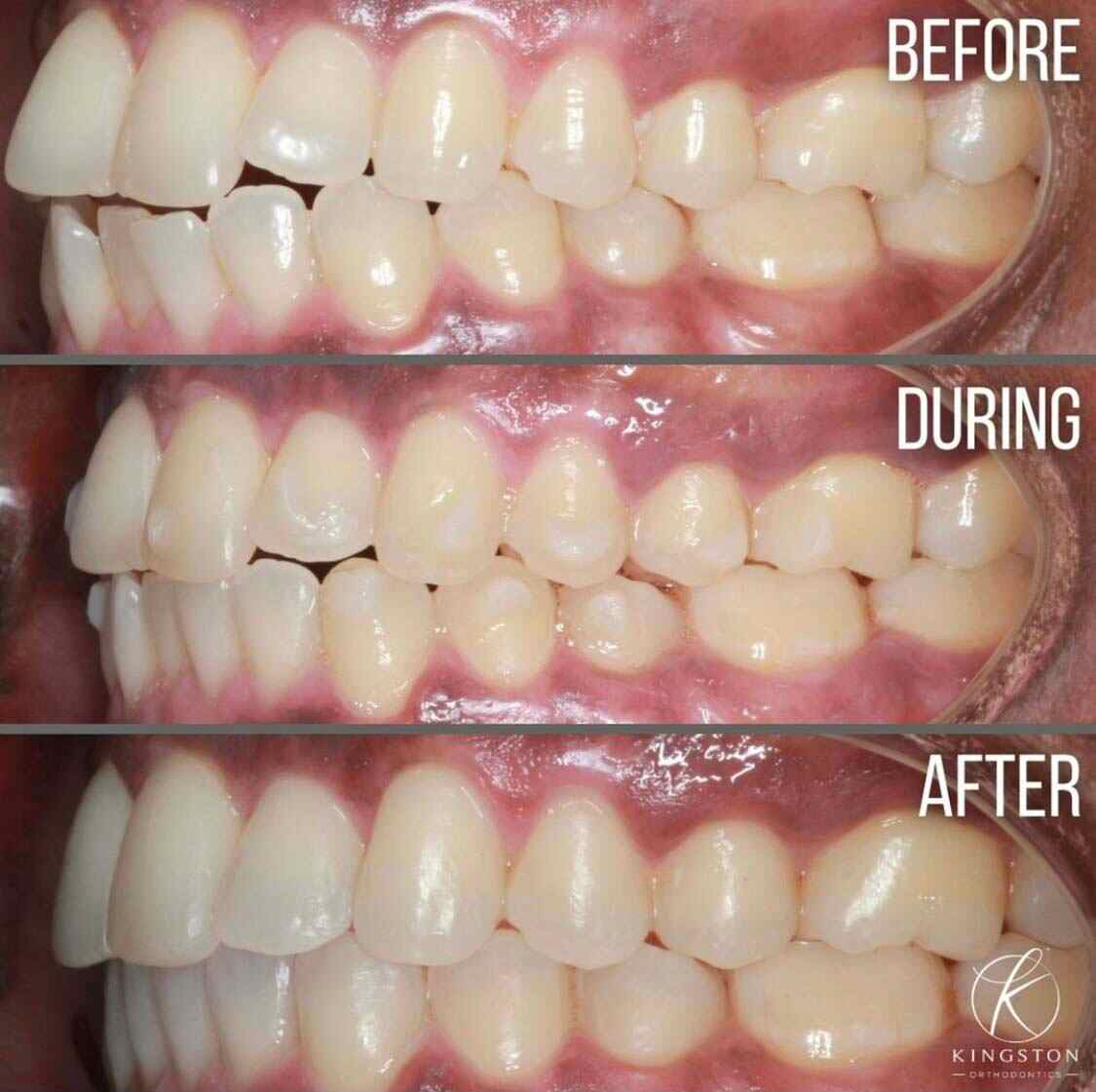
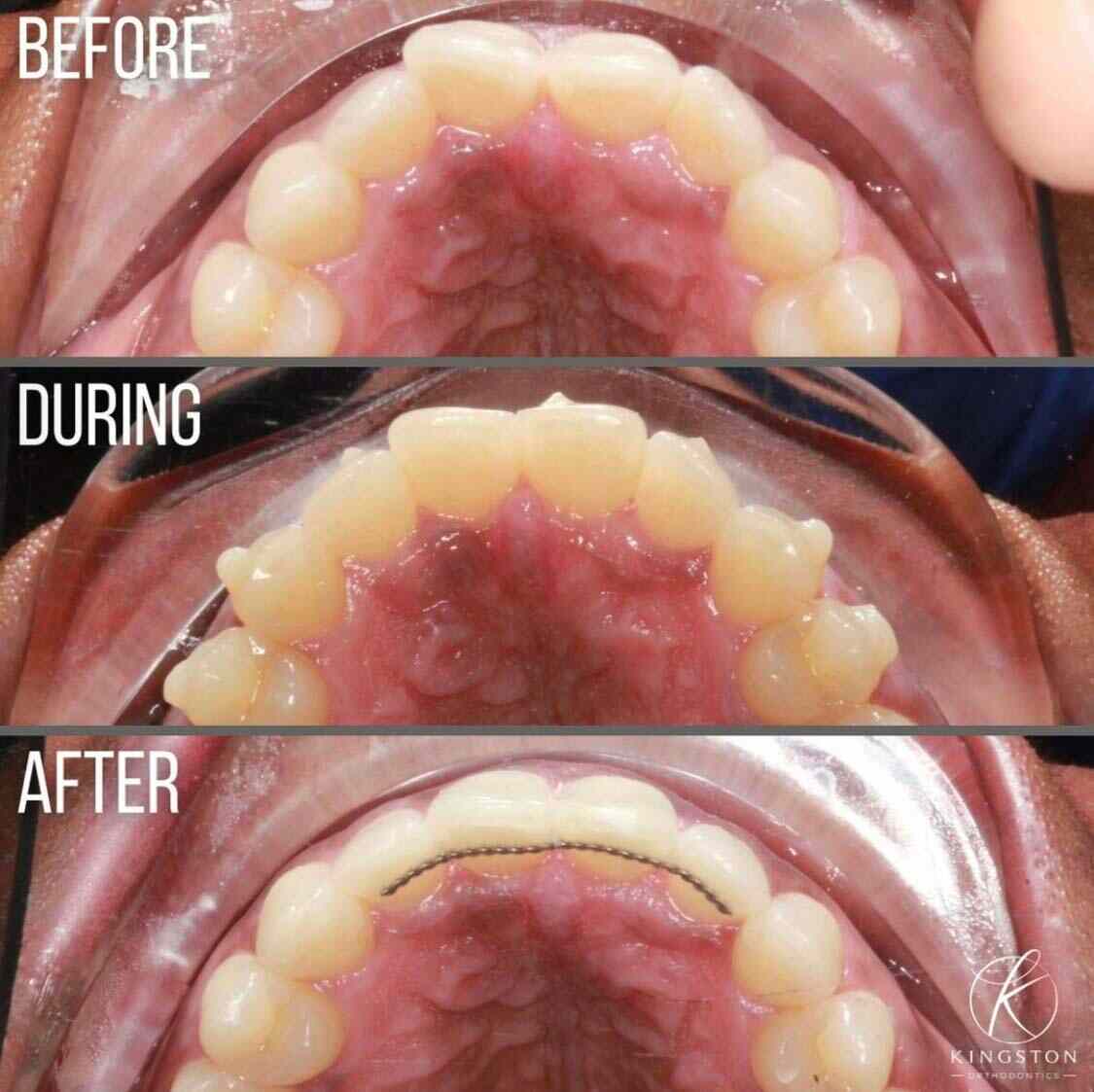
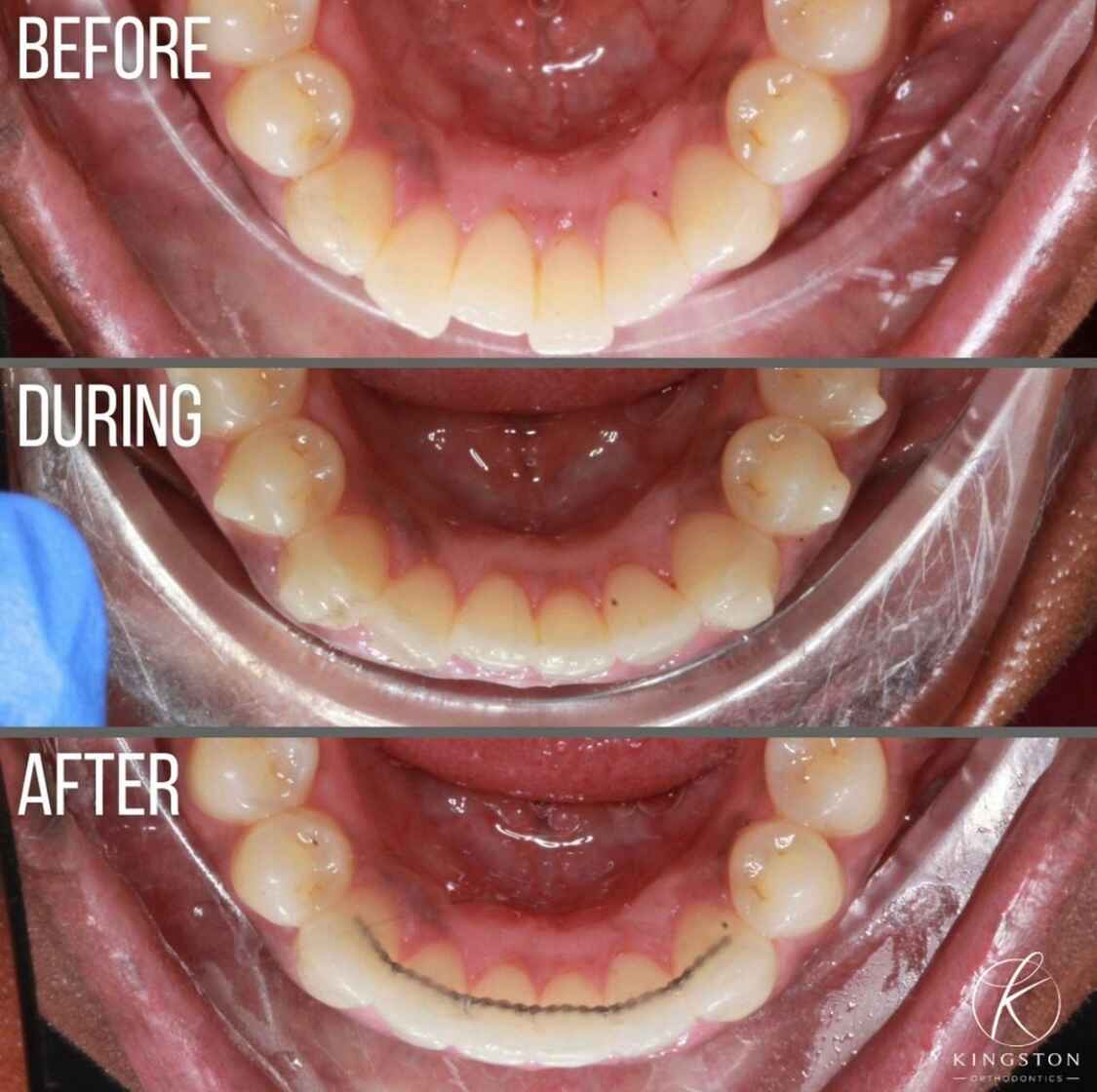
A few underlying issues cause an open bite: skeletal, dental or soft tissue and in some cases, it’s a combination of all three.
Skeletal issues affecting bone growth, inherited from a parent and passed to a child, can cause an open bite.
Dental causes of an open bite result from bad oral habits affecting dental development. These habits include thumb sucking, tongue thrusting and lip sucking.
Other causes of an open bite include:
An orthodontist can offer an effective treatment regardless of what causes your open bite.
The common and obvious sign of an open bite is the inability to close the mouth fully. The front or back teeth on the top and bottom arch do not touch.
Other signs of an open bite, including other malocclusions, include:
If you have an open bite, ensure you consult a specialist orthodontist to examine your teeth and bite. The orthodontist can diagnose the problem with a dental exam and x-rays.
With the X-ray, the orthodontist can see what is below the gum line to diagnose the cause of the open bite. After the diagnosis, the orthodontist will discuss your treatment options, and you can decide on a preferred treatment.
Yes, it can. An open bite can lead to complications in the mouth, teeth and general health issues. It also leaves an unpleasant smile. An open bite may worsen over time, increasing the risk of problems such as gum disease and excess wear and tear on the load-bearing teeth.
Other problems that may result from an open bite include:
These problems make correcting an open bite important. Children with an open bite require evaluation from an orthodontist when their front teeth fully erupt from age seven.
Adults also have treatment options like braces or Invisalign that offer excellent results when a skilled orthodontist oversees the procedure.
You will discuss your treatment options with the orthodontist during your initial appointment. Different treatments are available to correct an open bite. Ensure you consult an orthodontist who uses advanced and cutting-edge technology to deliver treatment.
Open bite treatment options include:
Braces are an efficient and affordable open bite-correction option. Different types of braces are available, including metal, ceramic and lingual braces. The ideal open bite treatment will depend on the diagnosis. Braces are easy to maintain, effective and give an attractive smile.
Invisalign effectively corrects an open bite when an experienced Invisalign provider offers it. Invisalign is an effective method for correcting orthodontic issues, including an open bite in teenagers and adults.
If the open bite is severe, jaw surgery may be necessary. You will need to see a Consultant orthodontist who works closely with a Consultant maxillofacial surgeon. Jaw surgery and orthodontics can effectively correct a severe open bite.
Retainers protect the teeth after orthodontic treatment. After your orthodontic treatment, whether with Invisalign or braces, the orthodontist will provide a set of retainers to preserve your smile and prevent a relapse. Ensure you wear the retainers as directed by your orthodontist.
We offer different treatment options for an open bite at Kingston Orthodontics. Contact us today at [email protected] or 0203 002 2501 to book an appointment with our experienced orthodontist.
An open bite is relatively rare. It affects about 0.6% of the population. An experienced orthodontist can treat an open bite with braces or Invisalign.
Severe cases of an open bite require surgery. However, regular orthodontic treatments like braces or Invisalign can correct an open bite. The orthodontist will conduct a full dental exam, including x-rays to assess your teeth and bite to determine the ideal treatment.
An open bite is a malocclusion, also called a bad bite, that prevents the upper and lower teeth from meeting when the mouth is closed. This leaves a space between the top and bottom arch. Consult your orthodontist if you have a space between the top and bottom teeth.
In most cases, orthodontic work carried out by an orthodontist can correct an open bite. Braces or Invisalign are effective open bite correction methods, provided an experienced orthodontist handles the treatment.
Severe cases may need surgery by an oral surgeon to supplement the orthodontic treatment.
A nighttime mouthguard, commonly called a nightguard, helps prevent locking the jaws or grinding the teeth while sleeping. In some cases, it may result in the teeth shifting over time, leading to an open bite.
Ensure you consult your orthodontist if you wear a nightguard for teeth grinding and are concerned about your teeth moving.
An open bite may worsen over time. If you have an open bite, ensure you visit an orthodontist to provide open treatment to prevent teeth and gum damage, pain or discomfort while chewing, swallowing and biting.
Children with an open bite who undergo early treatment from age seven will have an effective and long-lasting result.
No, it can’t. An open bite doesn’t correct itself but worsens over time, which requires more invasive treatment. Consult an experienced orthodontist for a long-lasting and effective open bite treatment. Your treatment options may include braces or Invisalign.
Yes, it can. Thumb sucking is a leading cause of an open bite, including other habits that gradually push the teeth out of alignment. These include tongue thrusting and swallowing patterns.
Yes, it can. An open bite may result in speech problems like lisping. If the top and bottom teeth do not close, articulation and speaking may be difficult.
Yes. An experienced orthodontist can correct an open bite in an adult. The treatment for adult open bite may be complex and involve jaw surgery or may be less severe and therefore manageable with braces or Invisalign aligners.

Spread the cost of any treatment
We are here to help you achieve the perfect – and affordable – smile so please talk to us about our popular interest-free payment plans. Spread the cost and relax – secure in the knowledge that your treatment will take place on time and on budget.